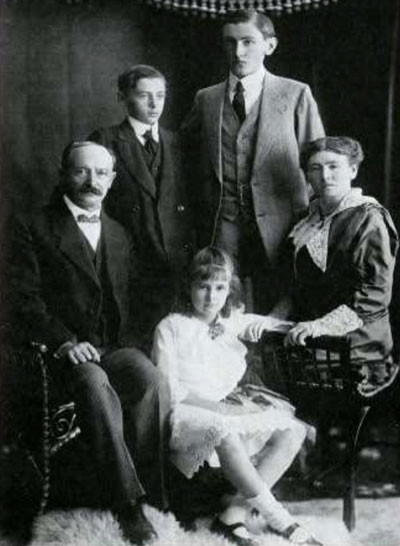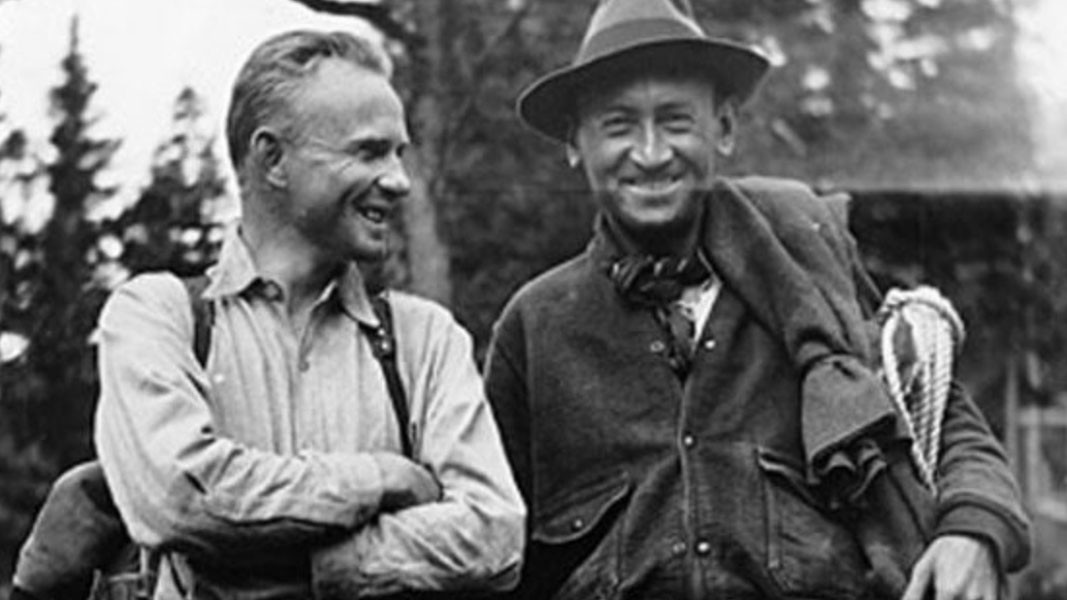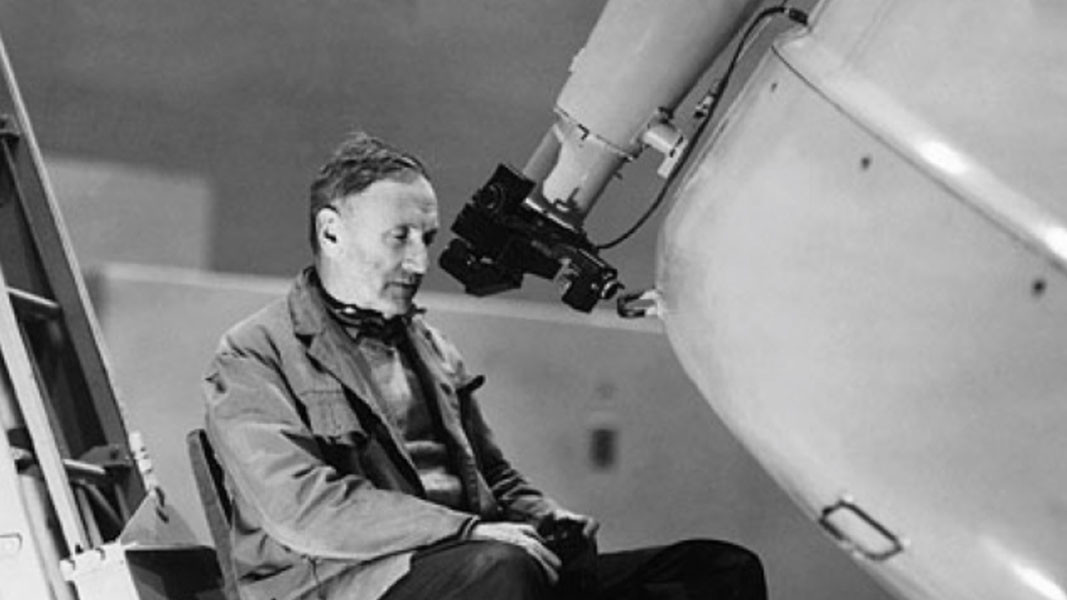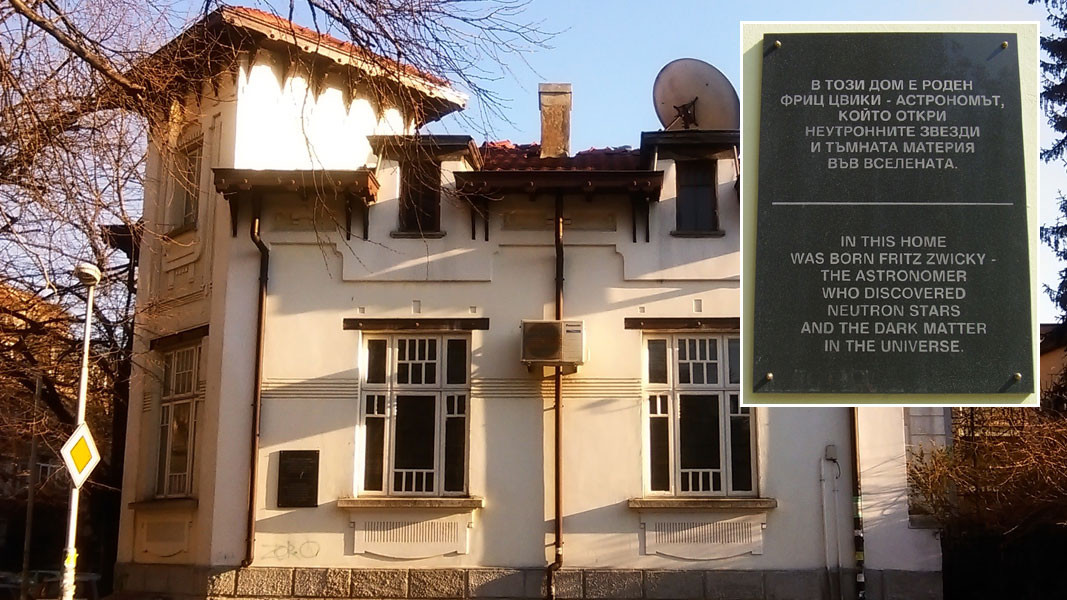One of the foremost astronomers and astrophysicists of all time, whose name was to remain connected with the stars forever, was born in Bulgaria, just before the turn of the 20th century. On 14 February, 1898, a male newborn baby was registered at Varna city municipality by the name of Pritz F Zwicky, but despite the clerical error, in the years to come, his name would become known to the entire science world for the amazing discoveries he made.

“Studying these clusters of galaxies, Fritz Zwicky applied the so-called virial theorem to calculate their mass,” says Ventsislav Dimitrov from the Institute of Astronomy of the Bulgarian Academy of Sciences. “That was how he was able to prove that the total mass of the galaxies is different from the mass of the stars in them (the luminous substance we see through the telescope). Until then it was thought that a galaxy is as massive as the sum of the mass of all stars in it. But his study showed galaxies had a different kind of mass which does not shine like the stars and is therefore invisible. Fritz Zwicky gave this matter a name – dark matter.”

On 15 January, 1934, the Physical Review published a summary of a presentation made by Fritz Zwicky and his associate Walter Baade, regarded as one of the most visionary documents in the history of physics and astronomy, a document that makes mention of supernovas and neutron stars for the first time.
“Massive stars, when they exhaust their fuel – hydrogen – and reach the end of their lifespan, collapse in the blink of an eye and turn into supernovas,” the astronomer goes on to say. “That is an event we call “supernova” – the star itself explodes and in fractions of a second spews out material from its nucleus into the surrounding interstellar space. In Fritz Zwicky’s time people knew there were so-called new stars which suddenly became very bright due to processes taking place inside them. But that was the time the neutron was discovered, and the scientist said that it was possible that when a star collapsed it turned into a neutron star by passing through a process called “supernova”. That was how he introduced the term “neutron star”.”

For his remarkable discoveries which were way ahead of their time, and which were only understood and developed decades later, Fritz Zwicky was awarded the presidential Medal of Freedom by US President Harry Truman and the Gold Medal of the British Royal Astronomical Society.
Besides being an extraordinarily gifted scientist, people say he was very warm-hearted, a benefactor, and that he was against the development and use of nuclear fuel. Fritz Zwicky died at the age of 75, and now there is nothing but a commemorative plaque on the wall of his family’s’ house in Varna to show that this was the place where one of the greatest minds of the world was born.

“Why people don’t talk about him more here, in Bulgaria, I really couldn’t say,” Venstislav Dimitrov says. “Fritz Zwicky is a great astronomer and scientist, and though he is not Bulgarian, he was born and raised here during the first seven years of his life – the most important formative years in one’s life. Of course we, astronomers know all about him, because when we work with supernovas, with dark matter, with galaxies, we are in fact working with the discoveries he made, with his theories and hypotheses.”
English version: Milena Daynova
Photos: private libraryNearly 40 years ago, the Bulgarian Orthodox Church Communities (BOCC) in Western and Central Europe were concentrated in several cities. After our country joined the European Union and with the growth of the Bulgarian diaspora, the Bulgarian church..
The Feast of the Annunciation is the day when God's promise for the salvation of the human soul from the eternal torments of darkness is fulfilled. Its message is that God loves us, says Father Bozhidar Marinov from the "Exaltation of the Holy Cross..
Veliko Tarnovo is proud of its glorious past, encoded in the city’s holiday, associated with the day of the Holy Forty Martyrs – the spiritual patrons of Bulgaria's medieval capital. On the day of the 40 followers of Christ (March 22 according to..

+359 2 9336 661
